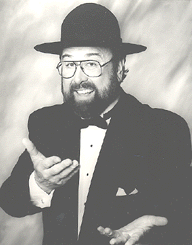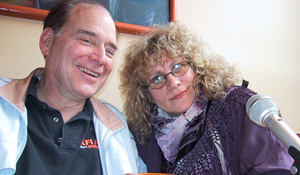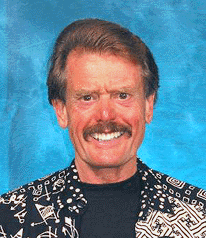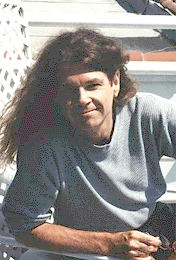By Don Elliot
 “I didn’t want to go! I didn’t want to go! I didn’t want to go!” That was “Shotgun Tom” Kelly’s reaction when it was suggested that he go to a voiceover workshop or an acting voice coach. After all, Tom had been pitching product in 30 years of radio and TV gigs, mostly in San Diego and for the past four years in LA while working afternoons at KRTH. “For four years, I tried to get a voiceover agent, and nothing,” said Shotgun.
“I didn’t want to go! I didn’t want to go! I didn’t want to go!” That was “Shotgun Tom” Kelly’s reaction when it was suggested that he go to a voiceover workshop or an acting voice coach. After all, Tom had been pitching product in 30 years of radio and TV gigs, mostly in San Diego and for the past four years in LA while working afternoons at KRTH. “For four years, I tried to get a voiceover agent, and nothing,” said Shotgun.
The subject frustrates the majority of jocks who can’t find an agent or a way into the world of voice-over. An innocent remark from Ellen K (KIIS-FM) that she was unable to secure a voice-over agent sparked a similar response from a number of others.
We hear straight from Vanessa Gilbert of the Tisherman Agency, one of the leading voice-over agencies. Veteran LARP, Neil Ross, Beau Weaver and I share, in a very positive way, how we made the transition from DJ to V/O actor. And we get a truly inspirational story from Shotgun Tom Kelly, who reluctantly took action and invested his time and money into learning a new craft and reaping the resultant payoff.
Shotgun was incensed. He didn’t get it. He was working afternoons at an important Infinity station in Los Angeles and didn’t like what he was hearing. Shotgun wanted to make the transition to voice work and reluctantly signed up for a V/O workshop conducted by Marice Tobias. He joined 10 others for a full weekend in a recording studio. “We were assigned copy and read it in front of the group. We were taught how to read what LA casting directors were looking for. We were learning a way to be a V/O actor.”
Shocked at all that he was learning, Shotgun stepped up a level and invested in a one-on-one study with Marice for six months. Every week he met with her to fine tune his voice acting skills. “It wasn’t cheap, $500 for the seminar and $175 an hour for the individual training,” said Shotgun.
At some stage you need a demo. Shotgun felt that Marice knew what should go on the demo. “When she feels you’re ready, she does the demo by selecting the copy, and directing the read.”
Taking direction seems to be the key. Radio people are used to doing their own spots without direction. There seems to be reluctance to take direction. Reading what the Program Director wants from liner cards about the format, and ad-lib on occasion, doesn’t prepare one to enter the competitive world of V/O. Of 40,000 registered AFTRA and SAG members here in LA, only about 400 of us really make a living at it. Isn’t that around 1%? To compete in that takes commitment, not an attitude of, “Oh well, I’m on the radio already so they kind of owe it to me.” Yeah, right.
“For four years I knocked on doors,” Shotgun reflected. “Rejection after rejection. In fact, I was rejected by virtually every V/O agency in town.” But the “new” demo from Shotgun so impressed the Tisherman agency that he was signed immediately. On his 15th audition, he got a Yamaha national spot. “I thought I was doing horrible, but Vanessa told me that it usually takes about 30 auditions to get that first national spot.” He’s gone on to do an Anheiser-Busch campaign.
Shotgun is not stopping there. “I’m still in training,” he enthused. Two weeks ago Shotgun graduated from the Working Pro Workshop put on by Kalmenson & Kalmenson. “I learned that voice quality means nothing. It’s all about realism and attitude. We were taught to not announce the words. We have to make people believe its real.” Shotgun said this latest workshop taught him another level of expression.
My Perspective:
Agents don’t like untrained radio people on spots. Most script direction on auditions specifically say, “No Radio-types,” and “young, unprofessional, attitude” for the majority of scripts I’ve seen lately. Actually, turn on the TV and listen with your eyes closed. Kinda describes it, doesn’t it?
 Vanessa Gilbert, one of the veteran voiceover agents in Hollywood, can “smell a radio person a mile away.” She confessed that a red flag goes up when she is approached by a radio person for representation. “Radio people don’t invest in acting. They are more worried about time,” said Vanessa. “Most radio people are announcers. They have no heart and no acting skills. Unless you have a warm, fuzzy voice, there is no voice work today.”
Vanessa Gilbert, one of the veteran voiceover agents in Hollywood, can “smell a radio person a mile away.” She confessed that a red flag goes up when she is approached by a radio person for representation. “Radio people don’t invest in acting. They are more worried about time,” said Vanessa. “Most radio people are announcers. They have no heart and no acting skills. Unless you have a warm, fuzzy voice, there is no voice work today.”
If you don’t believe the resistance that agents have against radio people, ask yourself when the last time was that you ever heard a DJ on a legit national commercial? A few of us did make the break. Casey Kasem is an exception. Ernie Anderson was an exception. Dan Ingram in New York is another.
You have to realize that times have changed. There was a time when the phone would ring at the radio station with clients calling to do freelance, because you were exposed, and if they liked your act you’d get a direct call without an agent! The last time that happened to me was in the ‘80s. It’s a different world now, and the reality is that you have to keep learning and honing your skills.
I strongly suggest that you join groups for workouts if you aren’t reading every single day. Take direction as well as criticism. And persevere. A lot of it is like a numbers game or throwing a dart. If you lose an audition, it doesn’t mean you did a bad job; someone just didn’t like your read for that situation. No audition is ever wasted. You made a connection. Nurse it. Keep the networking going. Stay in touch. Go read for the blind. Be a lector in your church. Take an improv class!
I know of a creatively thinking General Manager in LA who tried to get a morning team to stay in an improv class he paid for to hone their skills. I think it was the Groundlings. The team walked on the arrangement. Too smart for them. Uh, they’re still not doing any spots! It’s actually hard to convince or tell a radio person that they have to unlearn bad habits. After all, they’ve been on the radio for years and are making money at it, right? So when they meet a little resistance, ego gets in the way of logic and reason. Once you can get over that hurdle, you are on your way to making your mark in the voiceover world... and that’s one you can really take to the bank
 Story of a V/O Star: Neil Ross
Story of a V/O Star: Neil Ross
“I came to LA in 1978 to work at the old KPOL. My game plan was to transition out of radio and into voice-overs. I figured it would be a piece of cake with my twenty years of radio experience, heavy on the production side. Nothing could have been further from the truth. ‘You sound like a radio announcer!!?!’ screamed the first agent I approached in the same tone of voice he might have used to say child molester.
The sad truth is that the slick, professional, cosmetic read you’ve spent years developing is exactly what the buyers don’t want. They perceive it as utterly lacking in credibility and believability. They feel that the listener will tune it out — mentally if not physically. Virtually every piece of copy that I see these days contains the following phrase in the directions: ‘NOT AN ANNOUNCER!’ That’s you they’re talking about and they mean it. And the agents know it. This is why when you sit in the production studio and put together a tape of your ‘greatest hits’ and send it off to an agent, you get no response. They hear “radio announcer” in the first fifteen seconds and hit the rewind button. End of story.
What you need to do is what I and so many others did. You have to come to the realization that, although distantly related, radio and voice-overs are two very different businesses requiring very different skills. My analogy is that radio is driving a cab. Voice-over is driving a stretch limo with a major celebrity in the back seat. You have to swallow your pride, realize that your years of radio, far from being an advantage, are actually something of a drawback. You need to become a beginner again, start attending workshops and learning about the business from scratch. You need to check your ego at the door, and when a knowledgeable voice-over person criticizes your read, instead of saying, ‘Screw you! I was the voice of Jerry’s Lube and Oil in Omaha for fifteen years! Whadda you know?’ Listen and learn.
You’ll need to learn how to work in front of other people and accept criticism and sometimes confusing direction with calm professionalism. For so many years you’ve gone into the production studio by yourself, knocked out a spot to your satisfaction, carted it up and gone on your merry way. Voice-over ain’t like that. You won’t be able to touch the equipment. You’re not even supposed to adjust the mic. That’s the engineer’s job. Across the glass will be the producers. There may be only one, there might be five or six. They will all have opinions on your read, and they won’t be shy about sharing them. You think you’ve had reamings from the Program Director over the hotline? Try a voice-over session. Nobody is rude or abusive, but the pressure is still enormous. If you are doing a national TV voice-over, the airtime is costing millions. Every nanosecond, every syllable of your read will be picked over with a fine toothcomb. It’s not unusual for the take numbers to climb into the forties and fifties. All the while you’re drowning in flop sweat. I’ve known of more than one seasoned radio veteran who was so shattered by the experience, that they fell apart and never tried it again.
Just as you wouldn’t have sent a tape to a major market station when you only had six months experience, it’s folly to approach LA agents when you haven’t done your homework. These people are the KHJ’s and KIIS FM’s of their industry. They have no time for beginners. And to them, you’re a beginner. Find a good workshop, get in and get prepared. Take your time, learn, and when you think the time is ripe, produce a demo, but hire someone who knows the business to produce it for you! Approaching an agent with a “home brew” tape is like entering the Indy 500 in an ’83 Fiat. Spend the bucks. Why not - it’s only your career.
Be aware that you are getting into a very tough racket. When I started, there were only about six to seven hundred full-time voice-over people in LA. Now the figure hovers around twelve thousand and climbing. Everybody and her Uncle wants to be in the business. We are inundated with wannabes, shouldn’t bes, and an awful lot of extraordinarily talented, gifted people. It can be really quite humbling sometimes and quite scary.
Then there are the celebrities. When I started out in the late seventies, those folks wouldn’t lower themselves to do voice-overs. That has all changed. The celebrities are, with a few exceptions, happy to do voice-overs these days, and they’ve siphoned off a huge amount of the available business. And there’s really no way to compete with them. Fame is the name of the game these days. You might have the better read, but are the buyer’s golfing buddies going to be impressed by the fact that he worked with you? Would you appearing on behalf of the buyer’s wife’s favorite charity be any kind of a coup? Of course not. So guess who gets the account?
There’s so much more to it. I haven’t even touched on the various areas of voice-over. Promo work is very different from commercials. Narrations require one set of skills, animation others. Have you ever tried working to picture? Do you even know what that means? How are you at handling rejection? When I first started out in the business I averaged one job for every eleven auditions. Nowadays I’m good for one out of twenty, and many of those auditions involve driving to inconvenient places at inconvenient times. It’s not unusual to blow a couple of hours driving to and back from an audition that lasts two minutes and yields nothing. And if you’re going to stay in radio and do voice-overs part-time, that means your availability will be limited. That can be a problem. The buyers audition when they want to audition, and they work when they want to work. If you’re not available they just book someone else. Something an agent will take into consideration if he’s deciding between signing you or a similar talent who is available 24/7.
I’m not saying it can’t be done. Lots of radio talent have made the transition. John Leader, Chuck Riley, Jack Angel, Beau Weaver, Jack Roth, Robert David Hall and of course, Casey Kasem are just a few who come to mind. But I think they would all agree with this. You’ve got to approach voice-over with the same determination, drive and love for the business that you had for radio. If you do that, you may find yourself part of a business that can be every bit as exciting and rewarding as radio ever was and then some. But if you’re just looking to pick up a few extra bucks on the side, buy a lottery ticket instead. It’s a lot less of a hassle and the odds are better.
Radio people find it difficult to understand that what they are doing is different than what commercial voice actors are doing. ‘I’ve been cutting spots since I was fourteen’ they say. ‘It’s the same thing.’ No, it’s not.
Even when he/she is very talented, a radio guy starts from a different perspective. When you are a radio performer, you use the elements of the format as vehicles to develop and project your personality. This is a character you create over time using elements of your true self, along with some fictional elements. In time, this ‘identity’ or ‘act’ gets locked in. So, even though you are reading the same liners, the weather, or tags for VONS commercials, what is actually getting communicated is: ‘Listen to how cool I sound.’ This is how you distinguish yourself from the other jocks on your station, and make a name for yourself. Especially in highly formatted radio, you managed to find a way for your attitude to ooze out of the cracks, in the copy all the time.
 So, all content exists merely as a platform for you to get YOU across. This is what makes you great. But by this, you are crippled as a voice actor. A voice actor must make the message paramount. He creates a new character each time, who ‘comes from’ where the writer of the commercial comes from, speaking from a specific point of view, to a particular kind of consumer. Your only purpose is to communicate this message, not yours. The words are everything. And less is more.
So, all content exists merely as a platform for you to get YOU across. This is what makes you great. But by this, you are crippled as a voice actor. A voice actor must make the message paramount. He creates a new character each time, who ‘comes from’ where the writer of the commercial comes from, speaking from a specific point of view, to a particular kind of consumer. Your only purpose is to communicate this message, not yours. The words are everything. And less is more.
Too often, a radio guy’s approach to a script is: ‘Hmmmm... this would a great place for me to use my growling delivery,’ or some particular inflection he has copied. So that the script is, again, just a vehicle to serve their ‘act.’ Though he may indeed have many different ‘deliveries,’ each performance comes from the same place: himself.
And, God bless us, Radio folk think it’s about their voice. Oh sure, there are indeed a handful of voiceover performers who have big voices, but thousands more do not. The Radio guy, whose deep radio voice is his identity, finds this impossible to comprehend.
The work of the voice actor is to be able to make fine distinctions in attitude and emotion in order to serve the message, not his own ego. The Radioman usually works with two or three primary colors, and with a rather broad brush. But like a fish, who is not aware that he lives in water, it is difficult for him to see this. He just cannot hear that he sounds... like a radio guy.
Voice acting works with subtle shades, or patina, of emotion. Talent coach Marice Tobias calls voice acting ‘story telling with a point of view.’ It requires that the talent be able to internalize the words and make them his own in a believable way. Even for an ‘announcer’ role, it is the actor’s process that wins the job.”
Making the Transition
It is possible for radio folk to make the transition. The fine publication, the Voice Over Resource Guide, published by LARPer Dave Sebastian Williams (KEZY, KHJ, KFI, 10Q) has about seven pages of workshops and coaches who can help the performer learn a new skill set.
But this biggest hurdle to making the transition is often the radio guy’s own attitude. He is used to being “on top.” Hey man, he’s on a top station in Los-FREAKIN-Angeles, for crying out loud! He’s been in the Big Time for years! So to discover that in the world of professional voice work he is a beginner — and a beginner with a handicap (that “radio” accent) — is just too much for his ego to take.
If he/she is able to find a way to become teachable (the Buddhists call it “Beginners Mind”), then eventually the radio foundation can become an asset. But it usually takes a complete deconstruction of identity (much like they do in Marine Corps basic training) to soften the suit of armor worn by my beloved radio brethren. Most are simply not willing to become vulnerable enough to allow their hearts to be heard, instead of just their pipes.
If you are the sort of person who thinks that psychotherapy is a bunch of horseshit, then it is not likely that voice acting will be a good fit for you.
In my own case, I owe Joan Gerber, Michael Bell, Julie Amato and Marice Tobias, for being patient with me, while I learned to breathe, and to get out of my own way.
♦

